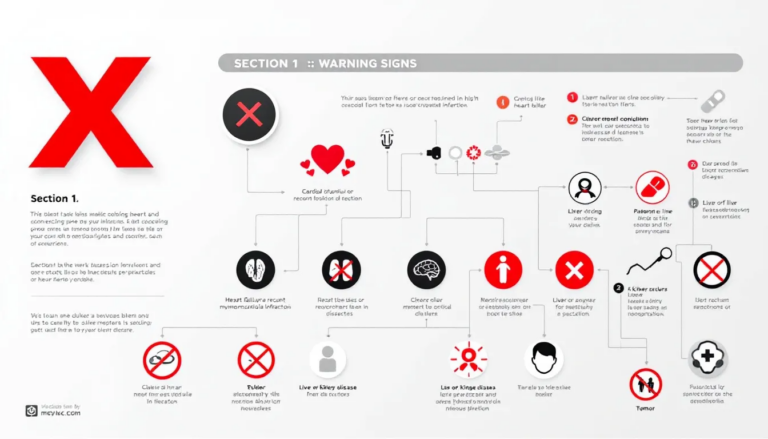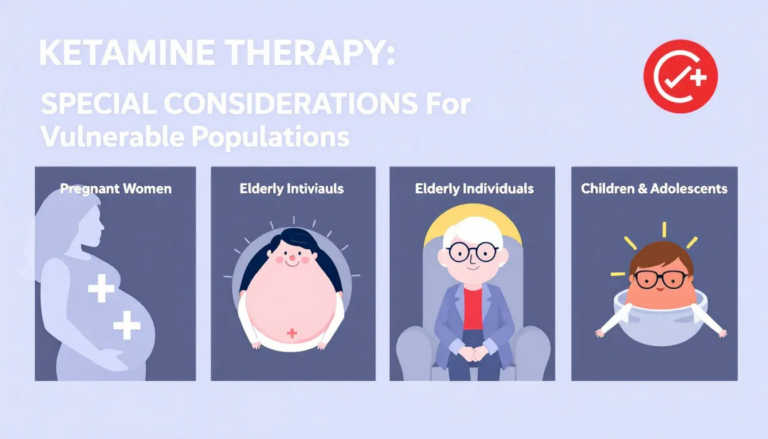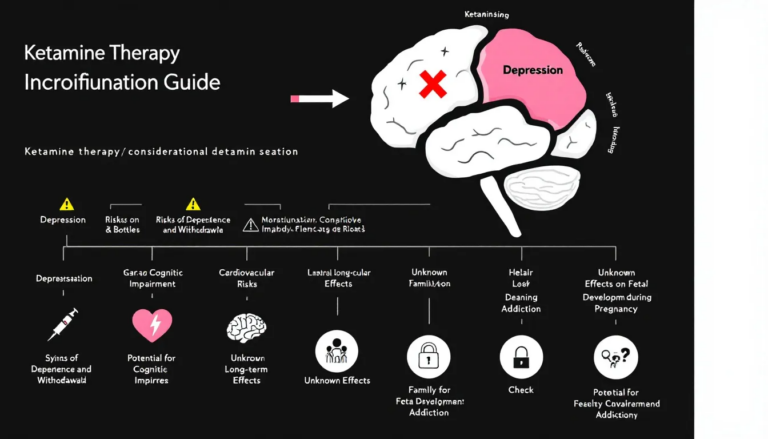Ketamine therapy is not suitable for everyone. This article explores who is not a good candidate for ketamine therapy, focusing on conditions and factors that can make this treatment risky or ineffective.
Key Takeaways
Individuals with significant mental or physical conditions, such as uncontrolled hypertension, severe mental health disorders, and hyperthyroidism, should avoid ketamine therapy due to increased risks.
A thorough evaluation and screening by healthcare professionals are essential to assess candidacy for ketamine therapy, with particular caution for special populations like the elderly, pregnant women, and those with substance abuse histories.
Potential interactions with other medications and commitment to the treatment process are crucial factors influencing the effectiveness and safety of ketamine therapy.
Table of Contents
Who Should Avoid Ketamine Therapy?

Despite its therapeutic advantages, ketamine therapy is not universally appropriate. Those with considerable physical or mental health issues, including severe hypertension that isn’t managed, intense psychological disorders, and an overactive thyroid, should steer clear of this form of therapy. A thorough evaluation of a patient’s medical background is essential to ascertain whether they are fit for such treatment.
Considering these vital health and safety considerations enhances the efficacy of the treatment while safeguarding the wellbeing of patients. Recognizing individuals who should refrain from undergoing ketamine therapy safeguards at-risk groups and facilitates improved management for those deemed suitable candidates.
Medical Conditions That Disqualify Candidates

Some medical conditions might render a person ineligible for ketamine therapy within a clinical environment due to the potential for it to compromise both the safety and efficacy of the treatment, possibly resulting in intense symptoms.
Conversely, individuals with specific health issues such as cardiovascular diseases, severe mental health disorders, and hyperthyroidism could be considered suitable candidates for undergoing ketamine therapy.
Cardiovascular Diseases
During and shortly after ketamine infusions, there can be a rise in blood pressure. Consequently, this presents significant danger for patients who have heart-related health issues. For those with uncontrolled hypertension, the potential of increased blood pressure and elevated heart rate brought on by ketamine rules out their suitability for such therapy due to the escalated threat of experiencing a heart attack or stroke. Similarly, conditions like coronary artery disease and arrhythmias exclude individuals because these disorders increase the likelihood of adverse cardiovascular events occurring during therapy.
Individuals diagnosed with high blood pressure must exercise caution regarding the prospect of undergoing ketamine treatment due to associated safety considerations. The situation is particularly critical for those suffering from heart diseases or congestive heart failure. Since heightened blood pressure and faster heartbeat rates triggered by ketamine might worsen their existing condition potentially leading to grave complications. An extensive evaluation focusing on cardiac health should precede any decision to administer ketamine therapy in patients harboring any form of cardiovascular ailment.
Severe Mental Health Disorders
Patients grappling with intense mental health conditions like severe bipolar disorder and schizophrenia are advised to steer clear of ketamine therapy. The administration of ketamine is ill-advised for patients in the throes of psychosis, marked by hallucinations or delusions, as it may exacerbate their symptoms and heighten potential dangers.
In those who suffer from severe bipolar disorder, ketamine could precipitate manic episodes. These individuals ought to pursue different therapies that sidestep such harmful consequences associated with this substance’s use in addressing their mental health issues.
Hyperthyroidism
Patients suffering from hyperthyroidism may encounter heightened risk when undergoing ketamine therapy, as it can provoke adverse effects on both heart rate and blood pressure. Hyperthyroidism itself is known to accelerate heart rate because of excessive sympathetic activity. When patients with this thyroid condition receive ketamine during therapy, the drug has the potential to amplify their heart rate and elevate their blood pressure, potentially leading to an unstable cardiac situation.
Consequently, individuals diagnosed with hyperthyroidism are advised against participating in ketamine therapy due to the serious risks associated with its impact on cardiac function.
Substance Use and Addiction Issues
Assessing a person’s past and present substance use is essential when considering them for ketamine therapy. The presence of a history of substance abuse increases the risk associated with ketamine therapy, as it may trigger a relapse into addiction or result in the improper use of this treatment.
The impact that an individual’s history with substance abuse has on their suitability for ketamine therapy, including considerations about possible medication interactions, is examined below.
History of Substance Abuse
Therapy involving ketamine can present considerable risks for those with past substance abuse issues, as there is a potential for relapse and the development of psychological dependencies. It is critical that patients abstain from alcohol and any other drugs that have sedative effects while undergoing ketamine therapy. Those who have struggled with addiction might seek to supplant their former dependence with one on ketamine, which could lead to an escalation in cravings and a perpetuation of destructive habits.
Administering ketamine treatment to individuals battling strong addictions, especially those addicted to substances similar to ketamine, requires careful deliberation on a case-by-case basis due to the possibility of adverse reactions. A thorough assessment of both dangers and advantages for these patients is crucial in preventing detrimental consequences.
Medication Interactions
Patients undergoing ketamine therapy should be aware that it can have negative interactions with various medications, such as antidepressants and stimulants. It is recommended to cease taking these drugs at least 12 hours before receiving ketamine treatment. In particular, the use of benzodiazepines, lurasidone, and lamotrigine in conjunction with ketamine may result in adverse reactions.
To maximize the benefits of their therapy and reduce potential risks, patients must inform their healthcare providers about all medications they are currently using before commencing treatment with ketamine.
Special Populations Requiring Extra Caution

When contemplating ketamine therapy for specific demographics like pregnant women, the elderly, and children, it is imperative to proceed with heightened vigilance because of their distinct risk factors. These patients should engage in thorough discussions with healthcare providers before embarking on such treatments.
There are particular apprehensions regarding the use of ketamine therapy among populations including pregnant or breastfeeding women, as well as older adults and young individuals. These concerns warrant a detailed examination below.
Pregnant and Breastfeeding Women
Healthcare providers recommend that pregnant and breastfeeding women refrain from undergoing ketamine therapy, as the safety of ketamine use in these groups has not been sufficiently studied. During pregnancy, there is a concern that ketamine might interfere with uterine function or cause problems with fetal heart rate.
Women who are currently pregnant or breastfeeding should steer clear of ketamine-based therapy due to the associated risks. It is essential for them to discuss alternative treatment options with healthcare professionals to protect both their own health and their child’s well-being.
Elderly Patients
Elderly patients are generally more sensitive to medications, leading to increased risks and complications during ketamine therapy. Older adults may experience increased risk of confusion and anxiety, as well as potential exacerbation of existing heart conditions. Complex co-existing conditions in elderly patients can lead to heightened sensitivity and reduced neuroplasticity, increasing the risks of ketamine therapy.
Older adults should consult with clinical experts before considering ketamine therapy to determine their fitness for treatment. Patients with complex syndromes or chronic conditions require careful evaluation to ensure safety during ketamine therapy.
Children and Adolescents
The lack of research concerning the application of ketamine therapy for children and adolescents leads to apprehensions regarding its recurrent use and possible impact on developmental health. The potential dangers linked with administering ketamine therapy in younger patients are rooted in this absence of scientific investigation.
In light of these doubts, it’s advisable to proceed with prudence when considering ketamine therapy for young individuals. Engaging healthcare providers to investigate different therapeutic options is essential in safeguarding the health and welfare of these patients.
Practical Considerations and Lifestyle Factors

The success of ketamine therapy is substantially influenced by everyday lifestyle choices and practical concerns, as well as the presence of certain health conditions that can impede the effectiveness of the treatment.
It’s crucial for patients to understand their dedication to undergoing ketamine therapy, including an awareness of possible side effects associated with this form of treatment.
Commitment to Treatment Process
It is imperative for patients to maintain consistent involvement in the treatment process to achieve the best results from ketamine therapy. It requires dedication to frequent appointments and reliance on support mechanisms, with regular sessions and supportive surroundings playing key roles in reinforcing adherence to the treatment regimen.
Those who are unable or struggle to adhere to necessary elements of the treatment protocol—like managing financial commitments or securing transportation—are potentially unfit for this kind of therapy. Post-therapy support often necessitates having friends or family members available who can provide encouragement following treatments involving ketamine.
Potential Side Effects
Ketamine therapy may lead to several side effects such as nausea, dizziness, and changes in perception. On uncommon occasions, patients might experience hallucinations. It is important for patients to communicate persisting symptoms post-therapy with their healthcare provider to keep track of any issues that arise.
It is imperative for healthcare providers to thoroughly inform patients about the possible adverse effects before commencing ketamine treatment. Healthcare professionals should consistently supervise the patient throughout the course of therapy in order to quickly respond to any new concerns or complications that may manifest.
The Importance of Thorough Evaluation

A thorough evaluation before starting ketamine therapy ensures patient safety and treatment effectiveness. Ketamine therapy should be administered under the supervision of healthcare professionals trained in its use.
The comprehensive screening process and the role of healthcare providers in this evaluation are covered below.
Comprehensive Screening
A comprehensive medical and psychiatric evaluation is necessary before starting ketamine therapy to ensure patient safety. Medical history, chronic illnesses, and mental health care issues must be considered during the evaluation. Patients should participate fully and honestly during the screening process for accurate evaluation.
Proper screening helps manage the dissociative effects of ketamine therapy and ensures treatment safety. Healthcare providers are responsible for continuously monitoring a patient’s ability to benefit from ketamine therapy. Thorough screening helps identify issues that could make ketamine therapy unsafe.
Role of Healthcare Providers
During ketamine therapy, continuous monitoring by healthcare providers is vital to maintain the treatment’s safety and efficacy. It’s imperative that a mental health expert evaluates whether an individual is appropriate for ketamine therapy. Because ketamine has the potential to elevate heart rate and blood pressure, it’s essential to keep a close watch on cardiovascular health.
A thorough review of how patients have previously reacted to treatments can provide insights into how well they might respond to ketamine therapy. The active participation of a healthcare provider plays an indispensable role in ensuring both the safe administration and effectiveness of any given course of ketamine treatment.
Summary
Ketamine therapy has yielded encouraging outcomes for a variety of patients. It is not universally appropriate. A meticulous evaluation taking into account individual medical histories, prior substance abuse issues, and the unique characteristics of certain groups is essential. Adhering to an in-depth treatment protocol increases the chances of success while safeguarding patient well-being.
Frequently Asked Questions
Who should avoid ketamine therapy?
Individuals with uncontrolled hypertension, severe mental health disorders, or hyperthyroidism should avoid ketamine therapy, as a thorough assessment of health history is crucial for determining suitability.
Why are patients with cardiovascular diseases disqualified from ketamine therapy?
Patients with cardiovascular diseases are disqualified from ketamine therapy due to the potential for ketamine to elevate blood pressure and heart rate, which can be detrimental to their condition. This heightened risk makes it unsafe for individuals with issues such as uncontrolled hypertension or coronary artery disease.
Can individuals with severe mental health disorders use ketamine therapy?
Individuals with severe mental health disorders, such as schizophrenia and severe bipolar disorder, should avoid ketamine therapy as it may exacerbate their symptoms and increase risks.
It is crucial to consult a mental health professional before considering any treatment.
Is ketamine therapy safe for pregnant or breastfeeding women?
Ketamine therapy is not considered safe for pregnant or breastfeeding women due to insufficient safety research and potential risks to fetal development and infant health.
It is advisable to avoid such treatment in these cases.
What role do healthcare providers play in ketamine therapy?
Healthcare providers are integral to the success of ketamine therapy, as they are responsible for conducting thorough screenings, observing patients closely, and handling any side effects that may arise.
It is imperative for these professionals to be actively engaged in order to secure the best possible results from the treatment.
Dr. Mitchell G. Cohen is a board-certified Internal Medicine specialist with over 34 years of experience in patient-centered healthcare. A graduate of Hahnemann University School of Medicine, Dr. Cohen completed his internship at the University Health Center of Pittsburgh, where he gained invaluable hands-on experience. He is also a certified addiction specialist, holding membership with the American Society of Addiction Medicine (ASAM).
Currently based in Nashua, NH, Dr. Cohen is affiliated with Saint Joseph Hospital, where he provides comprehensive care focusing on both internal medicine and addiction treatment. His expertise includes prevention, diagnosis, and management of adult diseases, as well as specialized care for individuals facing substance use disorders.
Dr. Cohen is committed to fostering open communication, ensuring his patients are fully informed and empowered to make confident decisions about their health and treatment options.

MD Mitchell Grant Cohen
Dr. Mitchell G. Cohen is a board-certified Internal Medicine specialist with over 34 years of experience in patient-centered healthcare. A graduate of Hahnemann University School of Medicine, Dr. Cohen completed his internship at the University Health Center of Pittsburgh, where he gained invaluable hands-on experience. He is also a certified addiction specialist, holding membership with the American Society of Addiction Medicine (ASAM).
Currently based in Nashua, NH, Dr. Cohen is affiliated with Saint Joseph Hospital, where he provides comprehensive care focusing on both internal medicine and addiction treatment. His expertise includes prevention, diagnosis, and management of adult diseases, as well as specialized care for individuals facing substance use disorders.
Dr. Cohen is committed to fostering open communication, ensuring his patients are fully informed and empowered to make confident decisions about their health and treatment options.
- MD Mitchell Grant Cohen
- MD Mitchell Grant Cohen
- MD Mitchell Grant Cohen
- MD Mitchell Grant Cohen
- MD Mitchell Grant Cohen
- MD Mitchell Grant Cohen
- MD Mitchell Grant Cohen
- MD Mitchell Grant Cohen
- MD Mitchell Grant Cohen
- MD Mitchell Grant Cohen
- MD Mitchell Grant Cohen
- MD Mitchell Grant Cohen
- MD Mitchell Grant Cohen
- MD Mitchell Grant Cohen
- MD Mitchell Grant Cohen
- MD Mitchell Grant Cohen
- MD Mitchell Grant Cohen
- MD Mitchell Grant Cohen
- MD Mitchell Grant Cohen
- MD Mitchell Grant Cohen
- MD Mitchell Grant Cohen
- MD Mitchell Grant Cohen
- MD Mitchell Grant Cohen
- MD Mitchell Grant Cohen
- MD Mitchell Grant Cohen
- MD Mitchell Grant Cohen
- MD Mitchell Grant Cohen
- MD Mitchell Grant Cohen
- MD Mitchell Grant Cohen
- MD Mitchell Grant Cohen
- MD Mitchell Grant Cohen
- MD Mitchell Grant Cohen
- MD Mitchell Grant Cohen
- MD Mitchell Grant Cohen
- MD Mitchell Grant Cohen
- MD Mitchell Grant Cohen
- MD Mitchell Grant Cohen
- MD Mitchell Grant Cohen
- MD Mitchell Grant Cohen
- MD Mitchell Grant Cohen
- MD Mitchell Grant Cohen
- MD Mitchell Grant Cohen
- MD Mitchell Grant Cohen
- MD Mitchell Grant Cohen
- MD Mitchell Grant Cohen
- MD Mitchell Grant Cohen
- MD Mitchell Grant Cohen
- MD Mitchell Grant Cohen
- MD Mitchell Grant Cohen
- MD Mitchell Grant Cohen
- MD Mitchell Grant Cohen
- MD Mitchell Grant Cohen
- MD Mitchell Grant Cohen
- MD Mitchell Grant Cohen
- MD Mitchell Grant Cohen
- MD Mitchell Grant Cohen
- MD Mitchell Grant Cohen
- MD Mitchell Grant Cohen
- MD Mitchell Grant Cohen
- MD Mitchell Grant Cohen
- MD Mitchell Grant Cohen
- MD Mitchell Grant Cohen
- MD Mitchell Grant Cohen
- MD Mitchell Grant Cohen
- MD Mitchell Grant Cohen
- MD Mitchell Grant Cohen
- MD Mitchell Grant Cohen
- MD Mitchell Grant Cohen
- MD Mitchell Grant Cohen
- MD Mitchell Grant Cohen
- MD Mitchell Grant Cohen
- MD Mitchell Grant Cohen
- MD Mitchell Grant Cohen
- MD Mitchell Grant Cohen
- MD Mitchell Grant Cohen
- MD Mitchell Grant Cohen
- MD Mitchell Grant Cohen
- MD Mitchell Grant Cohen
- MD Mitchell Grant Cohen







